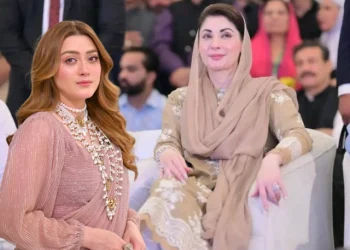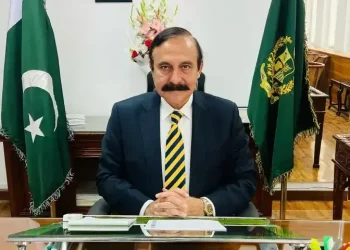MIAMI (news agencies) — After his traffic stop in Miami on Sunday, Tyreek Hill talked about “the talk” — instructions passed down in Black families for generations about what to do when pulled over by police.
Keep your hands in sight, preferably on the steering wheel. Avoid any sudden movements. Don’t talk back to the officer. And above all, follow instructions without error or delay.
Heeding that advice in the heat of the moment can be hard, as Hill’s own experience showed when the star wide receiver for the Miami Dolphins was stopped for speeding and reckless driving before the team’s first game of the season.
His interaction with police — captured in a now-viral cellphone video and body camera footage — escalated and is yet again prompting a larger discussion about the realities of “driving while Black.” According to a national law enforcement survey, traffic stops of Black drivers are more likely to include the threat or use of force.
Body camera video shows Hill rolled down the driver’s side window and handed his license to a Miami-Dade County officer knocking on the window. Hill then told the officer repeatedly to stop knocking, before he rolled the darkly tinted window back up.
After a back and forth about the window, the body camera video shows an officer pulled Hill out of his car by his arm and head and then forced him face first onto the ground on a street outside the team’s stadium.
The officers handcuffed Hill and one put a knee in the middle of his back.
“It happened so fast that it caught me off guard,” Hill said in a postgame interview on Sunday. Later, he said he was “embarrassed” and “shell-shocked” by the situation.
For many, Hill’s encounter with police drives home a reality that Black men in particular disproportionately experience what he did. Even if the encounter doesn’t end in tragedy, it confirms an ongoing need for the talk.
Hill wondered what would have happened if he wasn’t a celebrity.
“If I wasn’t Tyreek Hill, worst-case scenario, we would have had a different article — ‘Tyreek Hill got shot in front of Hard Rock Stadium.’ That’s worst-case scenario,” his said in a CNN on Monday.
Other Black Dolphins players said they were used to seeing the kind of police conduct that Hill experienced.
“I won’t say it was scary. It’s something I’m used to seeing,” linebacker David Long Jr. said.
Dolphins safety Jevon Holland said it was “not unnatural” to see police conduct the traffic stop that way – including what the footage appeared to show: one officer striking his handcuffed teammate. One of at least three officers involved in detaining Hill was placed on leave pending an internal investigation.
The Miami-Dade Police Department’s top officer, Director Stephanie Daniels, told the Miami Herald on Monday that the decision to place the officer on leave came after a review of the body camera footage, which she later said would not normally be released during an ongoing investigation but was, in this case, to maintain “public trust.”
“Excessive force on a Black man, that’s not uncommon. It’s a very common thing in America,” Holland said. “So I think that needs to be addressed at a countrywide level.”
Dolphins tight end Jonnu Smith, who was at the scene to support Hill, echoed Holland’s sentiments.
“Obviously we all see the police brutality that goes on in this country, and when you see your teammate possibly being part of that, you’re doing everything in your power to help him,” he said.
Doing exactly as you’re told is no guarantee against discrimination or excessive use of force, said Andrew Grant-Thomas, co-founder of EmbraceRace, a nonprofit that provides resources for parents and educators.
Furthermore, he said, perfectly, subserviently obeying law-enforcement commands “shouldn’t be the standard for any of us in dealing with police,” said Grant-Thomas, who is Black. “There are things like rights.”










 American Dollar Exchange Rate
American Dollar Exchange Rate